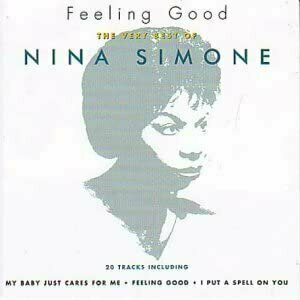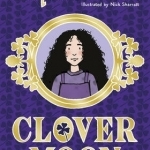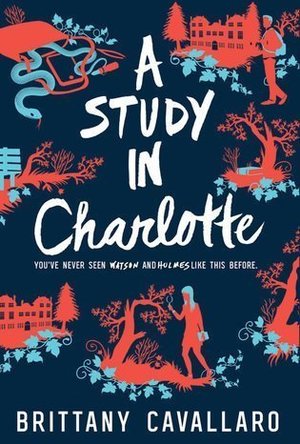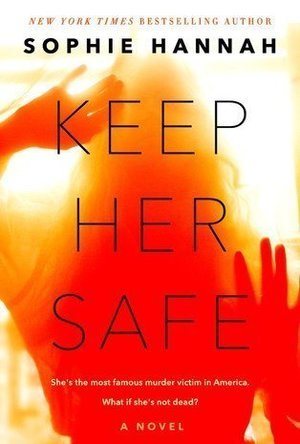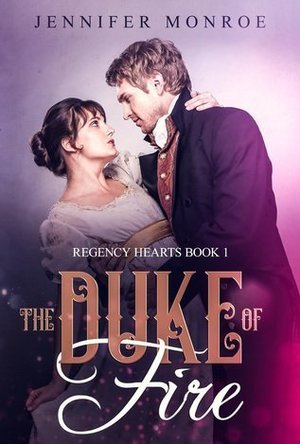
Lonely Planet Pacific Coast Highways Road Trips
Lonely Planet, Sara Benson, Andrew Bender and Alison Bing
Book
Lonely Planet: The world's leading travel guide publisher Whether exploring your own backyard or...
Tim Booth recommended Feeling Good: The Very Best of Nina Simone by Nina Simone in Music (curated)

BUX - Easy Stock Trading
Finance and Social Networking
App
Stock trading made exciting for everyone! Dive into the world of trading with BUX and discover the...

4WD Maps | Hema Australia Offline Topo Maps
Navigation and Travel
App
Offline 4WD maps for exploring Australia using your iPhone or iPad without an Internet connection. ...
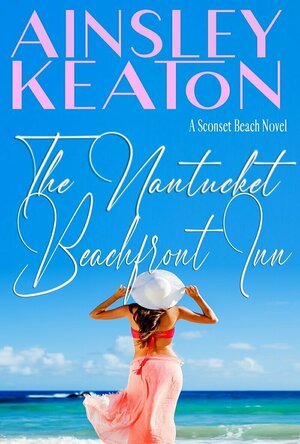
The Nantucket Beachfront Inn (Sconset Beach #1)
Book
She's 54, broken-hearted, and starting over.... High-powered New York attorney Ava Flynn finds...
Contemporary Women's Fiction
Hazel (1853 KP) rated Clover Moon in Books
May 24, 2017
Although now in her seventies, the Nation’s favourite children’s author, Dame Jacqueline Wilson, is continuing to write after surpassing one hundred novels. Many children (mostly girls) grow up reading her stories, myself being amongst that number. Even my sister, who hated reading, purchased a number of her books. It has been well over a decade since I last read a Jacqueline Wilson, however after seeing her latest novel was available for review, I thought I would give it a go.
Clover Moon is set in poverty-stricken Victorian London, where eleven-year-old Clover, the eldest of six siblings, lives with her father and stepmother. Like many stepmother’s in children’s literature, Clover’s treats her like a slave – a position she is destined to stay in unless she gets a job in a factory. With no school to attend, Clover becomes a second mother to her younger brother’s and sisters, yet nothing can prepare her for the devastating impact a wave of Scarlet Fever brings. With only an old doll maker who cares about her, Clover is desperate to get out of her situation; so after a chance meeting with an artist who tells her about a home for destitute girls, Clover decides to seek out the help and life she deserves.
Although only eleven, Clover has the responsibilities of someone of a more mature age. It is hard to imagine sending a child out to work, or trusting them to look after a newborn baby. Children reading this book will learn the difference between their lives and the life of a child in the 1800s.
As always, Jacqueline Wilson gives her main character a happy ending – although in this instance it still remains a bit uncertain. Despite the horrible circumstances, Wilson manages to pump her story full of enthusiastic optimism, thus portraying Clover as a strong, determined heroine.
Most of Jacqueline Wilson’s earlier books were set in the present day; there were still unhappy situations, but the settings were based on ideas the reader would be familiar with. In the case of Clover Moon, unless children have been educated about the poor in Victorian England, it is unlikely that they will be able to fully comprehend Clover’s predicament. As a result, the book is more suitable for young teenagers than the usual target audience of eight to twelve year olds.
Comparing my memories of Jacqueline Wilson books I read as a child with her latest publication, Clover Moon felt like something different; a new direction. As I have not read any of her work between the early 2000s and now, I am not sure when this change occurred, but it feels as though Wilson is delving deeper into her main character’s thoughts and feelings, and creating a more insightful storyline. On the other hand, I may simply be more intuitive as an adult than I was a child.
Although Clover Moon did not turn out to be the style of writing I was expecting I thoroughly enjoyed it. In fact, this difference made it possible to distance myself from the author’s renown, and treat it as an individual story. Clover is an admirable character who, through her narration, provides both an entertaining story and brief historical education. Fans of Jacqueline Wilson will not be disappointed with this latest publication; and if you are a new reader, Clover Moon is a great place to start.
Kyera (8 KP) rated A Study in Charlotte (Charlotte Holmes, #1) in Books
Jan 31, 2018
Charlotte and Jamie are wonderful, contemporary versions of their counterparts with familiar attributes while still being their own unique characters. Charlotte has a problem with narcotics, plays the violin and can usually be found with her beakers and test tubes (hopefully not blowing anything up). Jamie wants to be a writer, is a decent rugby player (despite what his scholarship might lead you to believe) and is braver than he thinks. Their best-friendship is appealing and realistic, despite Charlotte’s unique outlook on how to treat other human beings. You fall in love with the characters, whether you relate to Charlotte, Jamie, a little of both, or maybe one of the other supporting characters – you’ll find yourself enjoying this novel.
Each character even has a well thought out backstory that we learn more about throughout the course of the novel. What events and mistakes lead to Charlotte being sent to a boarding school in Connecticut when she should be in England? If a Moriarty and narcotics are involved, then you know it’s going to be intense – especially when the famous crime family isn’t particularly forgiving. Jamie’s story is less thrilling but no less important to his character. Not everyone is as they appear, some have secrets, some don’t always make the best choices, but it all drives the story forward. The book is full of poison, explosions, spying, chases and other staples of great mysteries.
The book has a lot of nods to classic Sherlock and Watson adventures and sometimes outright mentions them. As a huge Sherlock fan, from the classic novels of Sir Arthur Conan Doyle to the modern BBC creation – this book was perfection. I loved how it felt like a new story featuring some of my favourite characters and it kept you guessing until the end. The action and plot were well paced, allowing the story to unfold like a mystery should. Don’t worry, Moriarty’s were included in the writing of this story.
Highly recommended to young adult/teen fans of mystery, contemporary, or the classic Sherlock Holmes novels. I fell in love with this series and can’t wait to see where it goes from here.
Kristy H (1252 KP) rated Keep Her Safe in Books
Feb 13, 2018
The plot of this novel is pretty preposterous, so be prepared to suspend a bit of disbelief. Once you do that, <i>it's really quite enjoyable and a total whirlwind ride,</i> as you cling to Cara and try to figure things out with her. You first have to get past the fact that the woman has decided to come all the way to Arizona from the UK for her spa trip, spending, she claims, one third of her family's savings to do so. And, you'll learn, all over a insane misunderstanding/lack of communication with her family that will make you want to shake the entire clan. Good grief! However, I digress. Because, really, their lack of communication certainly works in our favor, because <i>this book may be crazy, but it's fun crazy and a wonderful sort of escape. </i>
<i>I found this to be a fascinating type of thriller.</i> I flew through the pages, constantly wondering how all the various pieces fit together. Hannah kept the entire thing going, unfurling great little twists and turns every so often to keep you hooked. It's intricately plotted and really quite well-done, even if it's all a little insane. I suspected a couple of portions, but was still really impressed at how everything went together. Cara is an interesting character--she's just bumbling and sympathetic enough that you can somehow believe that she'd stumble into a major murder mystery while on a spa holiday. Her supporting cast of characters is wide and varied: spa guests; various detectives and the FBI; those involved with Melody's case; and even a crime TV show host with a flair for the dramatic. Somehow Hannah weaves them all together successfully, for which you have to give her bonus points.
All in all, this was a slightly unbelievable novel, but compulsively readable with a thrilling mystery plot that completely hooks you. The characters all work together somehow and the novel is just a fun escape. Throw in a creepy ending that leaves you going "What?!" and this is definitely worth a read. 3.5 stars.
I received a copy of this novel from the publisher and Edelweiss (thank you!) in return for unbiased review; it is available in the U.S. everywhere as of 09/19/2017.
<center><a href="http://justacatandabookatherside.blogspot.com/">Blog</a>; ~ <a href="https://twitter.com/mwcmoto">Twitter</a>; ~ <a href="https://www.facebook.com/justacatandabook/">Facebook</a>; ~ <a href="https://plus.google.com/u/0/+KristyHamiltonbooks">Google+</a>; ~ <a href="https://www.instagram.com/justacatandabook/">Instagram</a>; </center>
Hazel (1853 KP) rated Clover Moon in Books
Dec 7, 2018
Although now in her seventies, the Nation’s favourite children’s author, Dame Jacqueline Wilson, is continuing to write after surpassing one hundred novels. Many children (mostly girls) grow up reading her stories, myself being amongst that number. Even my sister, who hated reading, purchased a number of her books. It has been well over a decade since I last read a Jacqueline Wilson, however after seeing her latest novel was available for review, I thought I would give it a go.
<i>Clover Moon</i> is set in poverty-stricken Victorian London, where eleven-year-old Clover, the eldest of six siblings, lives with her father and stepmother. Like many stepmother’s in children’s literature, Clover’s treats her like a slave – a position she is destined to stay in unless she gets a job in a factory. With no school to attend, Clover becomes a second mother to her younger brother’s and sisters, yet nothing can prepare her for the devastating impact a wave of Scarlet Fever brings. With only an old doll maker who cares about her, Clover is desperate to get out of her situation; so after a chance meeting with an artist who tells her about a home for destitute girls, Clover decides to seek out the help and life she deserves.
Although only eleven, Clover has the responsibilities of someone of a more mature age. It is hard to imagine sending a child out to work, or trusting them to look after a newborn baby. Children reading this book will learn the difference between their lives and the life of a child in the 1800s.
As always, Jacqueline Wilson gives her main character a happy ending – although in this instance it still remains a bit uncertain. Despite the horrible circumstances, Wilson manages to pump her story full of enthusiastic optimism, thus portraying Clover as a strong, determined heroine.
Most of Jacqueline Wilson’s earlier books were set in the present day; there were still unhappy situations, but the settings were based on ideas the reader would be familiar with. In the case of <i>Clover Moon</i>, unless children have been educated about the poor in Victorian England, it is unlikely that they will be able to fully comprehend Clover’s predicament. As a result, the book is more suitable for young teenagers than the usual target audience of eight to twelve year olds.
Comparing my memories of Jacqueline Wilson books I read as a child with her latest publication, <i>Clover Moon</i> felt like something different; a new direction. As I have not read any of her work between the early 2000s and now, I am not sure when this change occurred, but it feels as though Wilson is delving deeper into her main character’s thoughts and feelings, and creating a more insightful storyline. On the other hand, I may simply be more intuitive as an adult than I was a child.
Although <i>Clover Moon</i> did not turn out to be the style of writing I was expecting I thoroughly enjoyed it. In fact, this difference made it possible to distance myself from the author’s renown, and treat it as an individual story. Clover is an admirable character who, through her narration, provides both an entertaining story and brief historical education. Fans of Jacqueline Wilson will not be disappointed with this latest publication; and if you are a new reader, <i>Clover Moon</i> is a great place to start.
Midge (525 KP) rated The Duke of Fire in Books
Jan 29, 2019
What’s really likeable about it straight-away are the opening chapters that draw you into the main character, Miss Jane Harcourt. She is a kind, compassionate, strong, and clever governess, but has to leave her present employment due to the unwanted advances and desirous pursuits of her boss. She goes to stay with her cousin Anne and her husband David, until she is able to secure another position, working as a governess.
Jane finds herself further employment with Michael Blackstone, the Duke of Hayfield, also known as the Duke of Fire and his son, Samuel, a sweet eight-year-old little boy. Five years ago the Duke’s wife was killed in a fire and he has lived with the stress and guilt of her death ever since, as he was unable to save her from the fire before she perished. The Duke himself suffered terrible disfigurement and has become a virtual recluse in his own home.
The extremely wealthy Duke has a brother, Lord Robert Blackstone, who assists with all business matters concerning their vast estate, but, unfortunately, does not take much of a liking to Jane’s arrival. Jane in return is mistrustful of Lord Blackstone’s intentions.
I felt instantly on her side of the thoughtful, pretty, and caring Jane, particularly in her initial dealings with the Duke, with whom she was already in awe of. You can immediately sense that there was something going on, and one of the highlights of the book was following how they dealt with their emotional feelings. The Duke is, at first, hard to work out but you gradually get to know him as the story unfolds and see that he has many surprising qualities. Both the plot and the character development are excellent, and the story-line is very believable. The story is both captivating and engaging. It held my interest from start to finish, and I found myself rooting for both Jane and the Duke as they tried to deal with all of their conflicting emotions of that time and the courage they showed in confronting their challenges.
"The Duke of Fire" was an interesting novel particularly with regard to the interaction of the different characters - a loving, bright and energetic young boy, a handsome, but selfish and untrustworthy brother and a judgemental, gossiping, close-knit ton. Plenty of emotional angst and ups and downs along the way and plenty of surprises. I loved the authors writing style which I found very easy to read. It was a fantastic read!
I delighted in every page of the book from beginning to end and my only criticism would probably be that it could have been a little longer. I liked very much how the book was ended. I have been inspired to read more from Jennifer Monroe and I highly recommend this book. I suggest wholeheartedly that you add it to your reading list.
Thank you to Hidden Gems and the author, Jennifer Monroe for a free ARC of this book in exchange for a voluntary, honest review.
